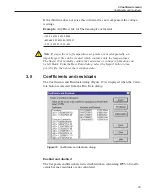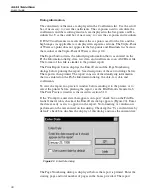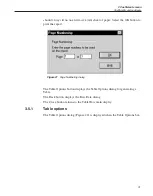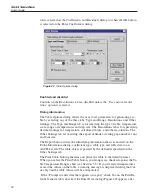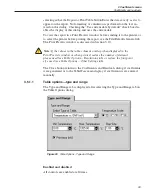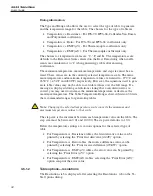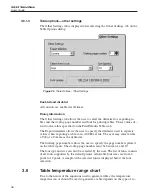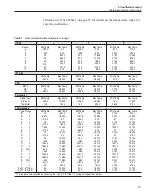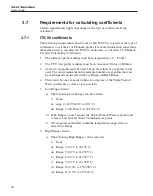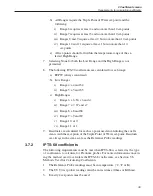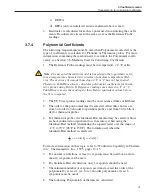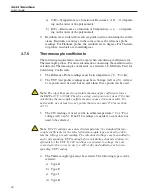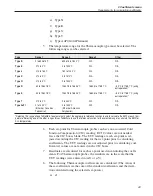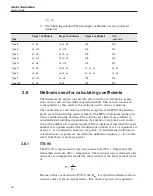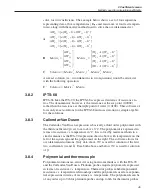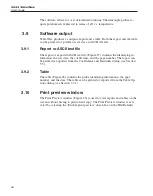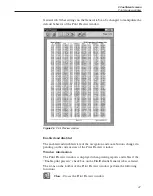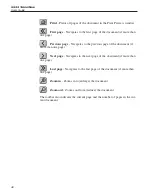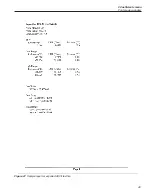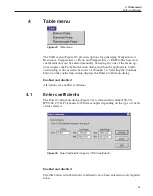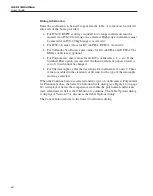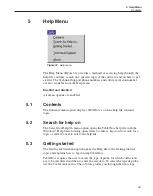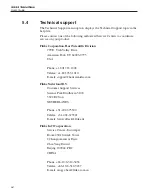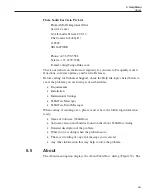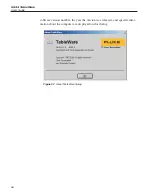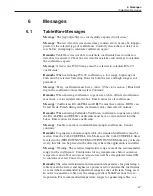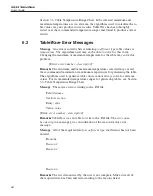
e) Type N
f)
Type R
g) Type S
h) Type T
i)
Type AuPt (Gold-Platinum)
5.
The temperature range for the Thermocouple type must be selected. The
following ranges can be selected:
Type
Range 1
Range 2
Range 3
Other
Type B
0 to 630.615°C
630.615 to 1820°C
N/A
N/A
Type E
-270 to 0°C
0 to 1000°C
N/A
N/A
Type J
-210 to 760°C
760 to 1200°C
N/A
N/A
Type K
-270 to 0°C
0 to 1372°C
N/A
N/A
Type N
-270 to 0°C
0 to 1300°C
N/A
N/A
Type R
-50 to 1064.18°C
1064.18 to 1664.5°C
1664.5 to 1768.1°C
–50°C to 1768.1°C (using
extrapolation)*
Type S
-50 to 1064.18°C
1064.18 to 1664.5°C
1664.5 to 1768.1°C
–50°C to 1768.1°C (using
extrapolation)*
Type T
-270 to 0°C
0 to 400°C
N/A
N/A
Type AuPt
0 to 1000°C
(8th order Canadian
Polynomial)
0 to 1000°C
(9th order American
Polynomial)
N/A
N/A
*Selecting this range allows Table
Ware
to automatically select the appropriate reference function to use to calculate the EMF at each tem-
perature. Selecting one of the other ranges forces Table
Ware
to use the reference function for the selected range to calculate the EMF for
ALL temperatures.
6.
Each set-point for Thermocouple probes can have an associated Cold
Junction Compensation (CJC) reading. If CJC values are not needed,
leave the CJC boxes blank. The UUT reading at each set-point is ad-
justed according the CJC reading for that set-point prior to calculating
coefficients. The UUT readings are not adjusted prior to calculating coef-
ficients if values are not entered in the CJC boxes.
7.
Residuals are calculated for each set-point used in calculating the coeffi-
cients. For Thermocouple probes, the residuals are in the scale that the
UUT readings were entered in (mV or
μ
V).
8.
The following Thermocouple coefficients are calculated: (The values of
these coefficients are the sum of the standard coefficients and the devia-
tion calculated using the selected set-points.)
a) c1
43
3 Coefficients menu
Requirements for calculating coefficients

